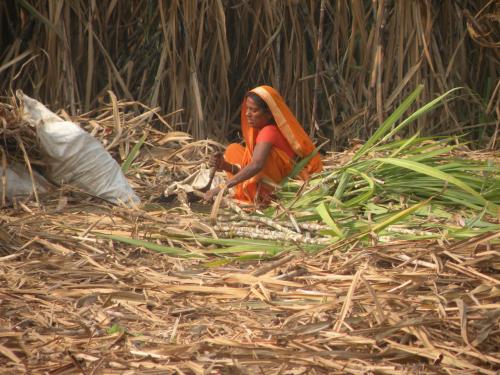
On Eid I went to the Nepal International Clinic (NIC) as I had injured my hand playing basketball. The staff at NIC are very efficient and provide quality services. After my appointment, I decided to walk to Ratna Park Path in order to take a bus to Sanepa. I stopped at a bakery and picked up a nut tart for NPR 65. As I walked south on Durbar Marg, I noticed a long line of what appeared to be very poor people. As I made my way to Ratna Park Path, I saw a number of People with Disabilities, one of whom was on his back wiggling his “leg stumps” in the air, hoping for spare change.
During the next week I met up with ex-pat and Nepali friends in Thamel. At one restaurant, I ate a veggie burger for NPR 250 and another had momos for NPR 120. Since it was 8:30 PM and buses were no longer running, my friends and I took a taxi for NPR 300 to Dhapasi.
Due to my good fortune and circumstances, for most of my life I’ve led a middle class existence in the United States and I do realize how blessed I have been. I don’t know what it is like to be really poor, waking up and going to sleep hungry or having to live without a permanent home. Even at a time when I was jobless and collected unemployment, I had enough food and stayed with friends and my parents.
I’ve recently been having conversations with some ex-pats and been trying to “wrap my head around” the work that I’ve been involved with, i.e. disability and Corporate Social Responsibility, for the past four years in India and Nepal. This isn’t an easy conversation with others or inside of my head, and leaves me with a feeling of emptiness, , i.e. trying to understand and identify what I am struggling with? On one level I am able, because of my privilege and former educational opportunities, to somewhat, at least on an intellectual level, discuss the contrast between where I grew up and where I’ve lived, which bothers me, but somehow this isn’t enough.
For me, this comes down to many questions which I have trouble answering, e.g. how do I justify/rationalize living in my current shared accommodation, which is basic and comfortable with a kitchen, interior bathroom and living room, with that of my neighbors to the north, who live in a one room semi-permanent housing with their two small children and electric tools for making malas. This family shares an outside toilet with a single man and another family, also living in one room. What about the Haruwa/Charuwa who I’ve met and their living as bonded labourers? This “hits” me directly in the face.
I don’t feel as if I lead a” luxurious” life, nor do I aspire to this. I don’t own a car or a house and have very few possessions, but have had these. On the other hand, the families living next to me and possibly many Nepalis and Indians that I’ve met, wouldn’t be able to afford the restaurants where I ate and pay NPR 120 for momos or travel in a taxi at NPR 300, let alone have access to health services at a place like NIC. My perception is that the family next door to me and others are only trying to ensure that they have enough food today to feed themselves.
The reality is that no matter how long I’m able to live overseas and no matter how many case studies or articles I’m able to write, I may never be able to fully comprehend how the people whom I’ve worked with live their lives as I can only see the surface, barely the tip of the iceburg.










Add new comment